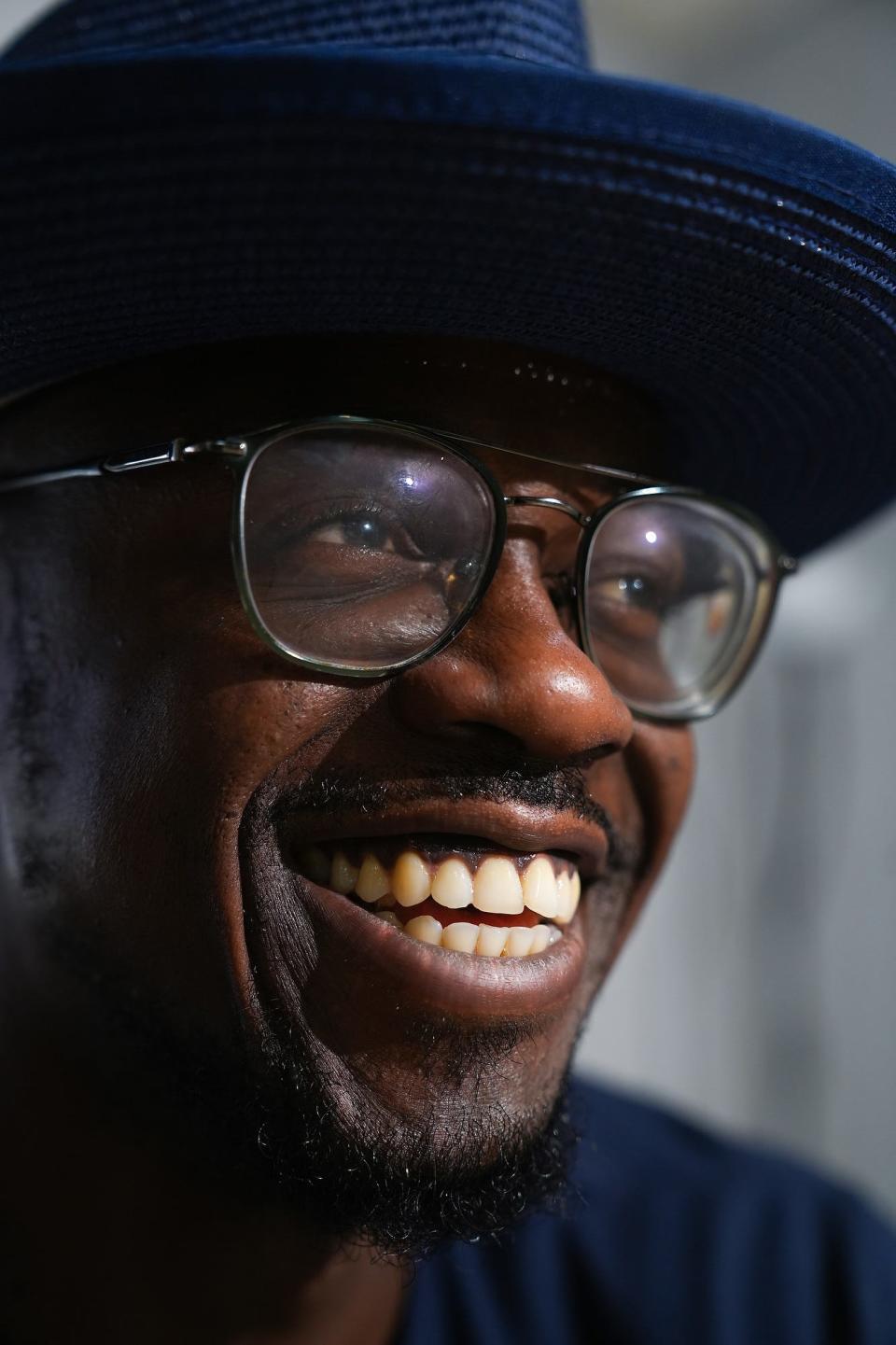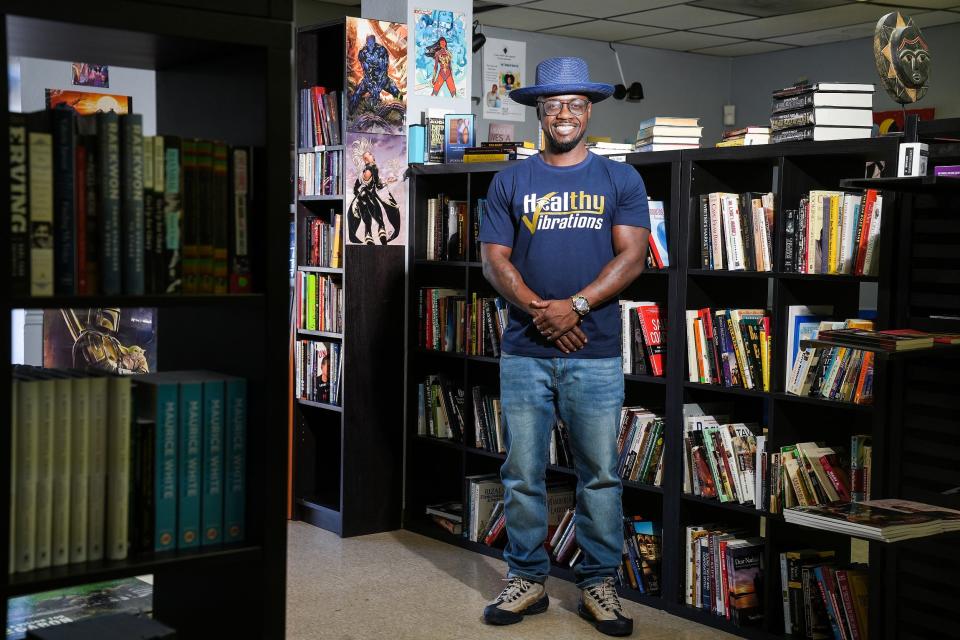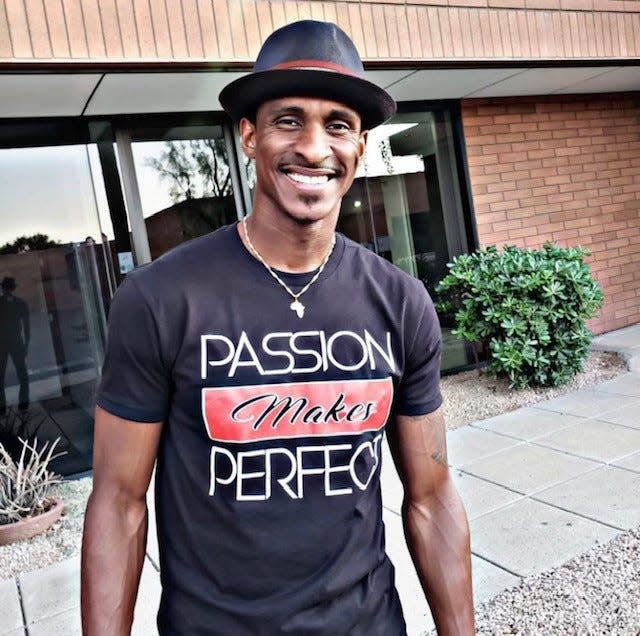How difficult life experiences helped Bilal Rahim fill a void within his community
As a kid, Bilal Munir Rahim says he knew he needed guidance to find his way in life, but his father was not around.
When he was 7, Rahim said he remembers being out late at night in his central Phoenix neighborhood, where he was always surrounded by violence and drugs.
Rahim said he watched his mother battle with drug addiction and domestic violence. Rahim and his mother had to figure out life on their own, he said.
“When you are a young boy there is only so much that your mom can teach you. You’re going to reach a certain age when you’re going to want to figure out where you come from and different things about being a man. If your father is not necessarily there or a good father figure … you’re going to turn towards the streets to figure these things out,” Rahim said.
In middle school, Rahim moved to San Diego. Rahim said he and his siblings witnessed their mother rebuild her life and “put herself back together again.”
It was in high school, after returning to Phoenix, that Rahim reconnected with his father.
“Just meeting my dad was a new beginning for me. I don’t harbor any of those feelings like my dad wasn’t there for me. As a man you still need your father, and he has been there for me through that point,” Rahim said.

At 21, Rahim became a father. From the moment his daughter was born, he said he knew it was important to be present in his daughter’s life.
He was well on his way until a few years later when his cousin, whom he considered a big brother, was shot in front of him. Rahim was 25 and the last person to see him alive. Triggered by the loss, Rahim said he experimented with drugs and alcohol in order to cope.
As time went on, Rahim said he realized he was only hurting himself through his poor choices. “I had to address my issues head on. If there was another way for me to get the understanding without having to go through all of that then, I would take that route,” Rahim said.
Through faith and support from his family Rahim was able to pull himself out of a dark place.
Existing through art: Phoenix artist brings awareness to issues affecting undocumented people
In 2015, Rahim wanted to connect with other Black men in his community. He found that fatherhood was a common ground for many of them. It inspired him to start Our Black Fathers Committee, a support group for fathers. This led him to organize an event where Black lawyers and firefighters came to speak about their career paths.
The media and society depict successful Black men as sports figures and music artists, Rahim said. His goal was to present different career options and opportunities for Black men.
“A lot of the time that is all we are told we can do. We are not encouraged to take other routes,” Rahim said.
Through the event Rahim realized that targeting youth would make the greatest impact. During this time Rahim said he read a quote he couldn't get out of his head. It was by Frederick Douglass, a former slave and abolitionist: “It is easier to build strong children than to repair broken men.”

Rahim and Qaadir Muhammad gathered up the young men in their families and began mentoring and guiding them. They designed a mentor program specifically for Black boys.
"I think it’s important to have someone that looks like you, that comes from where you come from and is teaching you things," Rahim said.
It would be the start of forming their nonprofit Fight 4 Life, No Excuses.
The south Phoenix based group mentors Black boys ages 8-17. Participants are taught about both African and African-American history and culture, martial arts, STEM, health and fitness, mental health and even basic car maintenance. The young men and the mentors meet together as a group on Saturday mornings.
Fight 4 Life, No Excuses is now in its seventh year. Around 20-25 young men join each year and slots fill up quickly. The group hopes to have the capacity to accept more young men in the future
The program is a safe space to discuss issues that personally affect Black men. One topic that Rahim and mentors touch on is how to interact with law enforcement. Rahim drills into the young men that the goal is “to get home safe.”
'A storytelling dream fulfilled': Arizona-raised immigrant leaves her mark by reporting on migrant stories
Rahim works for a pharmaceuticals company and runs the program in his spare time. His dream is to one day be able to run the organization full-time.
He receives updates and calls from past graduates who want to share life milestones they've achieved.
"The best thing is seeing when the young men call us to share experiences they have, that lets me know that I made an impact," Rahim said.
Harold Branch IV was 14 when he joined the group in 2019 with the encouragement of his parents. Branch excelled academically and finished high school at a young age. He recalls his Phoenix high school not being diverse. Through the program, Branch learned about historical Black figures who he never heard about in any of his classes.
“It just helps (to have the representation of the positive figures that look like you in history and it makes you feel more confident in yourself. I think this program is beneficial for any young Black person,” Branch said.
One of Branch’s favorite pieces of the mentor program was the opportunity to discuss mental health. Branch was able to open up and talk about depression and anxiety in group discussions.
“I could just be me and learn a lot of things that are useful in my life moving forward,” Branch said.
Branch is a sophomore at Arizona State University and is majoring in biomedical engineering. He continues to volunteer and keeps in touch with Rahim and the other mentors.
In 2018, Jvion Jones briefly met Rahim for the first time. Jones randomly showed up to one of the group's meetings as a volunteer. He never left and became a mentor.

Like Rahim, Jones had a similar experience with his father.
“My father wasn’t really present when I was there. A lot of the tools we give to these young men, I didn’t get that. If they don’t have a positive figure, then a negative figure is going to take its place,” Jones said.
Jones was diagnosed with brain cancer last year and underwent surgery to have a tumor removed. Despite his surgery Jones attended the annual graduation for the young men.
"I have been able to do what I love to do. This is a very peaceful place for me to be. We are genuinely like a family," Jones said.
This article originally appeared on Arizona Republic: Bilal Rahim's path to starting a Phoenix-based mentor program for Black boys

